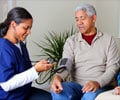- Mixing Alcohol With Medicines - (https://www.niaaa.nih.gov/publications/brochures-and-fact-sheets/harmful-interactions-mixing-alcohol-with-medicines )
- Glipizide - (https://medlineplus.gov/druginfo/meds/a684060.html )
- Glipizide - (https://www.ncbi.nlm.nih.gov/books/NBK459177/ )
Glipizide Medication Information
Learn everything you need to know about Glipizide-pronunciation, uses, dosage guidelines, indications, and when to take or avoid it.
Get up-to-date information on side effects, precautions, warnings, and proper storage to ensure safe usage.
Explore Glipizide brand names commonly used in India and internationally, along with detailed pricing information. Consult your healthcare provider for tailored medical advice.
Generic Name : Glipizide Pronunciation : GLIP-i-zide ICD Code : Y42.3 Therapeutic Classification : AntidiabeticsBrand Names or Trade Names of Glipizide
India :
International :
Glucotrol
Why is Glipizide Prescribed? (Indications)
This medication is a sulfonylurea antidiabetic agent, prescribed for type 2 diabetes (condition in which the body does not use insulin normally and therefore cannot control the amount of sugar in the blood), particularly in people whose diabetes cannot be controlled by diet alone. It increases the amount of insulin secretion and thus regulates the sugar level in the blood.When should Glipizide not be taken? (Contraindications)
Contraindicated in patients with hypersensitivity, Type 1 diabetes, ketoacidosis, severe kidney or liver impairment, pregnancy and breastfeeding.What is the dosage of Glipizide?
PO: Initial-2.5 to 5 mg/day as a single dose may increase slowly. Doses greater than 15 mg may be given in 2 divided doses. Max: 40 mg/day.How should Glipizide be taken?
Extended-release: Should be taken with food. (Swallow whole, do not chew/ crush/ divide.)Immediate-release: Should be taken on an empty stomach. (Take ½ hour before meals.)
What are the warnings and precautions for Glipizide?
•Caution should be exercised in patients with history of liver, blood disorder.• Do not drink alcohol while you are taking this medication. It may increase the risk of low blood sugar.
• It may increase the risk of death from heart disease, thyroid problem, moderate liver or kidney failure.
• Monitor blood glucose concentration.
What are the side effects of Glipizide?
Metabolic- Low blood sugar.Heart- Increased risk of death due to heart problems.
Central Nervous System- Dizziness and vertigo.
Skin- Allergic skin reactions, inflammation of skin, itching, redness, hives, eruptions and photosensitivity.
Eye and ENT- Tinnitus.
Gastrointestinal- GI disturbances (eg, nausea, loss of appetite, heartburn) and diarrhea.
Genitourinary- Mild urinary frequency, elevated Blood, Urea, Nitrogen and creatinine levels.
Liver- Jaundice and elevated LFT (liver function test) results.
Blood- Decrease in white blood cells, platelets, hemoglobin.
Miscellaneous- Disulfiram – like reaction (symptoms like uneasiness, vomiting, mental confusion, chest pain, headache etc on taking alcohol while on the medication), weakness, tingling, fatigue and uneasiness.
 MEDINDIA
MEDINDIA
 Email
Email













